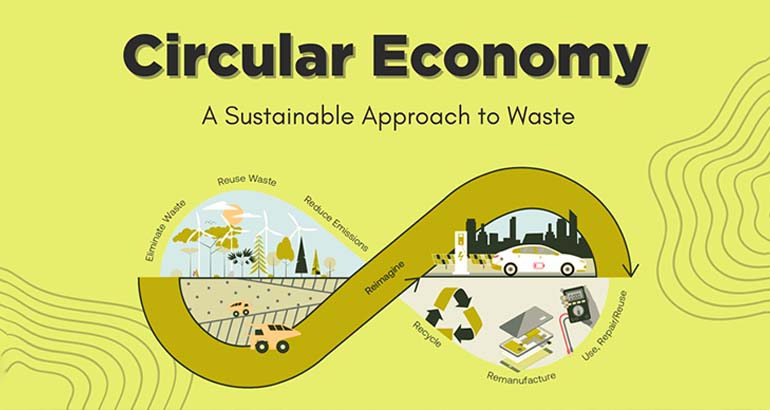Mon to Sat: 09:00 am to 05:00 pm

Mon to Sat: 09:00 am to 05:00 pm

In the heart of Uganda, a revolution is quietly transforming the landscape of sustainability and environmental care. This revolution is led by Ecoplastile, a company dedicated to tackling plastic waste by transforming it into durable and eco-friendly roofing tiles. As the world grapples with the dual crises of waste management and environmental degradation, Ecoplastile’s innovative approach represents a beacon of hope and a model for sustainable practices.
The Circular Economy Concept
At its core, the circular economy is a regenerative system that aims to minimize waste and make the most of resources. Unlike the traditional linear economy, which follows a 'take, make, dispose' model, the circular economy emphasizes reuse, repair, refurbishment, and recycling. This system not only reduces the environmental impact of production but also fosters sustainable growth by creating new economic opportunities and conserving resources.
Ecoplastile embodies the principles of the circular economy by using recycled plastic waste as the primary material for their roofing tiles. This process not only diverts significant amounts of plastic from landfills but also reduces the demand for virgin materials, thereby conserving natural resources and reducing greenhouse gas emissions associated with plastic production.
Innovative Manufacturing Process:
The manufacturing process at Ecoplastile begins with the collection of plastic waste. This waste is sourced from various locations, including households, businesses, and landfills. Once collected, the plastic is sorted, cleaned, and shredded into smaller pieces. These pieces are then melted and molded into roofing tiles, which are both durable and environmentally friendly.
This innovative process has several benefits. Firstly, it provides a sustainable solution to the plastic waste problem, reducing the amount of plastic that ends up in landfills or oceans. Secondly, it produces high-quality roofing materials that are resistant to weather and wear, offering a viable alternative to traditional roofing materials. Finally, it creates jobs and stimulates economic growth by supporting local communities and businesses involved in the waste collection and recycling process.
Leading the Green Transition:
'
Ecoplastile’s pioneering work in Uganda serves as an inspiring example for other countries and companies looking to adopt sustainable practices. By demonstrating the viability and benefits of a circular economy, they are paving the way for a more sustainable future. Their success shows that it is possible to achieve economic growth and social development while also protecting the environment.
In conclusion, Ecoplastile is at the forefront of the transition to a circular and green economy, combining innovation, sustainability, and social care. Their efforts to transform plastic waste into valuable products not only address pressing environmental issues but also create economic opportunities and promote social equity. As the world continues to seek solutions to the challenges of waste management and environmental degradation, Ecoplastile stands out as a leader and a source of inspiration. Through their commitment to ending waste and accelerating the transition to a circular economy, they are helping to build a greener, more sustainable future for all.
Leave a comment